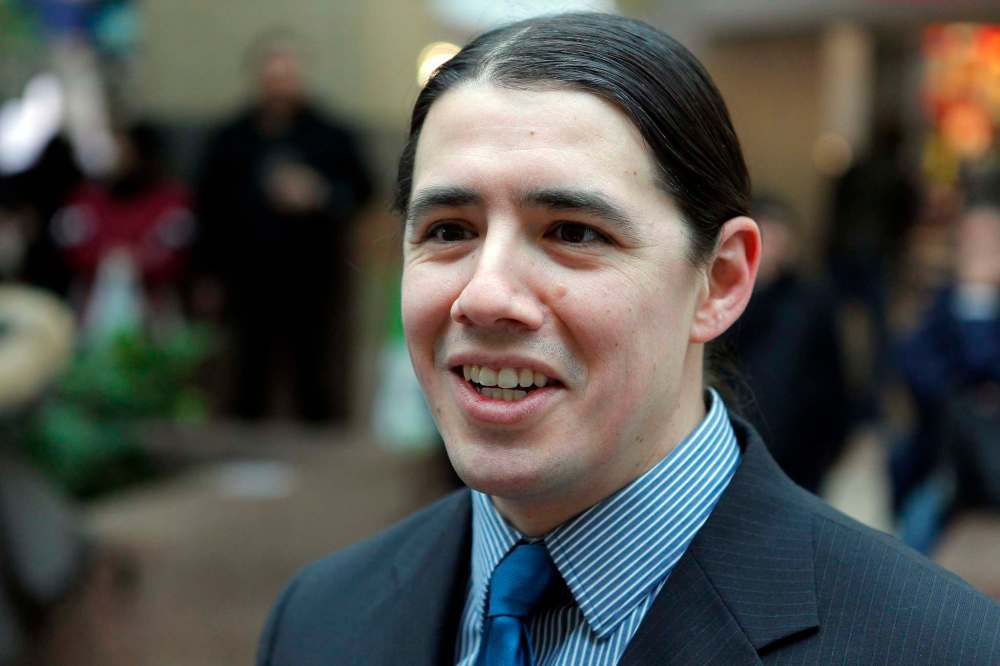Feds to spend $400M on Indian Act
Legislation could see status eligibility more than double
Advertisement
Read this article for free:
or
Already have an account? Log in here »
To continue reading, please subscribe:
Monthly Digital Subscription
$1 per week for 24 weeks*
- Enjoy unlimited reading on winnipegfreepress.com
- Read the E-Edition, our digital replica newspaper
- Access News Break, our award-winning app
- Play interactive puzzles
*Billed as $4.00 plus GST every four weeks. After 24 weeks, price increases to the regular rate of $19.95 plus GST every four weeks. Offer available to new and qualified returning subscribers only. Cancel any time.
Monthly Digital Subscription
$4.99/week*
- Enjoy unlimited reading on winnipegfreepress.com
- Read the E-Edition, our digital replica newspaper
- Access News Break, our award-winning app
- Play interactive puzzles
*Billed as $19.95 plus GST every four weeks. Cancel any time.
To continue reading, please subscribe:
Add Free Press access to your Brandon Sun subscription for only an additional
$1 for the first 4 weeks*
*Your next subscription payment will increase by $1.00 and you will be charged $16.99 plus GST for four weeks. After four weeks, your payment will increase to $23.99 plus GST every four weeks.
Read unlimited articles for free today:
or
Already have an account? Log in here »
Hey there, time traveller!
This article was published 06/12/2017 (2970 days ago), so information in it may no longer be current.
OTTAWA — The federal government will spend more than $400 million to remedy sex discrimination in the Indian Act Ottawa’s budget watchdog revealed Tuesday, only after Parliament passed a bill widened in a push led by Manitoba senators.
The parliamentary budget officer released its estimates after months of government delays, and its report only became public the morning after the House of Commons had passed the bill.
If the government follows its own legislation, it will more than double the number of people eligible for Indian status to an estimated 700,000 people, at a time when the federal government says it aims to devolve more powers to First Nations groups.

“This bill is actually quite important as it creates a larger mass of people who can form this new political entity,” Winnipeg Liberal MP Robert-Falcon Ouellette said in a Tuesday interview.
An August 2015 court decision in Quebec ruled the Indian Act discriminates by excluding women who marry non-Indigenous men, as well as their descendants.
The Liberals tabled Bill S-3 in November 2016, to fix the lineage rules for those who lost their status from 1951 onward. But Manitoba Sen. Marilou McPhedran amended the legislation in May so it would apply to cases dating to 1876, as First Nations activists have long demanded.
That sparked a dramatic showdown with the government, who warned an unknown number of people could flood First Nations voting rolls and overwhelm services. The deadlocked bill ping-ponged between the Senate and House, with the government leveraging a court deadline in a failed effort to get the Senate to concede, before reluctantly asking the court for more time. Sen. Murray Sinclair was among those pushing for a wider bill, as was Ouellette.
Last month the government found a middle ground, convincing senators to approve the bill’s original wording, which would only extend status to 35,000 people, on the condition the government looked at expanding the bill.
The government pledged to consult with First Nations on expanding status to people who lost it prior to 1951, while reporting to parliament on those efforts within five months, a year, and three years after the bill becomes law, which is likely later this month.
The PBO reported that while the bare-bones bill will add $55 million to annual federal expenditures, the eventual wider expansion will cost some $407 million every year.
That’s in addition to one-time administrative costs of $71 million, instead of $19 million for the original bill.
The PBO report says 700,000 people will be eligible to join the 500,000 who hold Indian status, though it estimates just 270,000 people will actually do so.
That’s much lower than the Liberals’ frequent claim that between 800,000 and two million people would suddenly gain status if McPhedran’s amendment had come to fruition.
Tuesday’s report predicts a limited impact on First Nations reserves, contradicting the government’s apoplectic warnings of swelling band rolls.
Since June, the PBO has been trying to learn the cost of various iterations of Bill S-3, after requests by both Ouellette and McPhedran.
Mark Mahabir, a research assistant with the PBO, said the department took a long time to release the data and had asked for an extension until Dec. 15, which is the House of Commons’ last scheduled sitting day.
Parliament was under a twice-extended court deadline to get the bill passed by Dec. 22, and the court would have otherwise ordered the Indian register closed.
The government provided most of the data within the past week, though more is still coming later this month.
While MPs and Senators were given a briefing on the bill Monday before that evening’s final Commons vote, it was only released to the public Tuesday morning.
“It was kind of a rush job,” said Mahabir, who added the Trudeau government has overall been more responsive than the previous Harper administration.
In July, Ottawa said it would only provide the PBO with its demographic data if the budget watchdog didn’t publish it, because the government put it under a “Protected B” classification, defined as information that “could cause serious injury to an individual, organization or government.” In October, the Liberals released that data to the public.
dylan.robertson@freepress.mb.ca
History
Updated on Wednesday, December 6, 2017 8:06 AM CST: Photo added.
Updated on Wednesday, December 6, 2017 10:05 AM CST: Typo fixed.
Updated on Thursday, December 7, 2017 4:34 PM CST: Name of the research assistant with the PBO corrected to Mark Mahabir.

